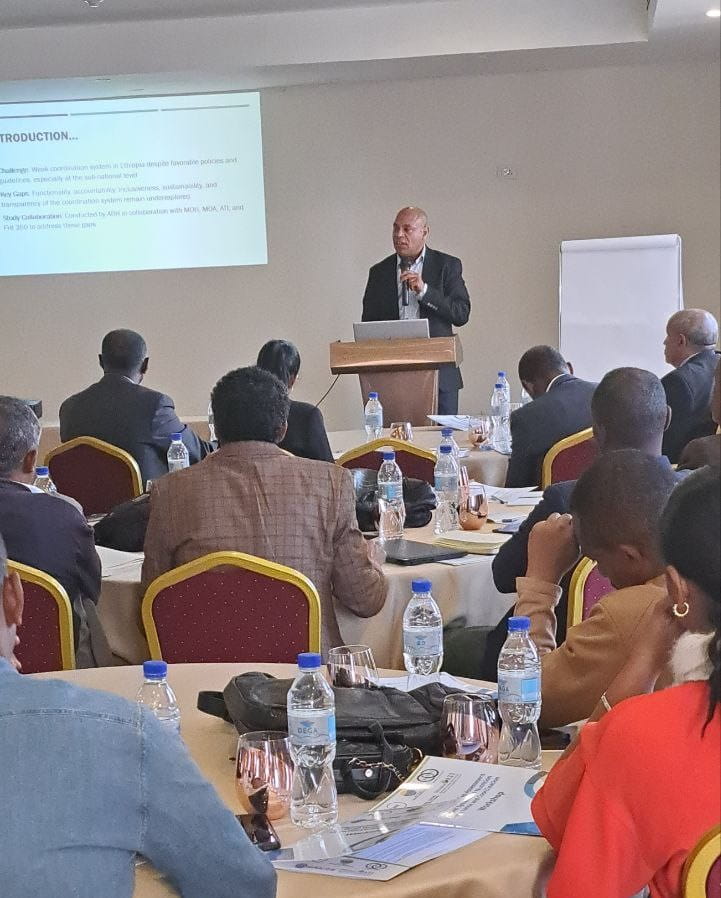Food System and Nutrition Coordination and Governance Gaps in Ethiopia
Overview
Ethiopia has strong policies on food systems and nutrition, with multisectoral coordination introduced under NNP-II. However, governance and coordination challenges remain unresolved. This study identified these gaps through a qualitative assessment, stakeholder analysis, and literature review at national and regional levels.
Outcome
The National Nutrition Coordination Body (NNCB) enhanced multisectoral engagement, but weak commitment, budget shortages, and limited resources hindered regional implementation. The Seqota Declaration was more effective due to stronger funding and government commitment. The Food System and Nutrition Interministerial Committee lacks legal backing and does not include academia, the private sector, and regional leaders. Strengthening governance with a legal framework, clear accountability, and inclusive engagement under the Prime Minister’s Office is crucial for sustainable improvements in Ethiopia’s food system and nutrition.




